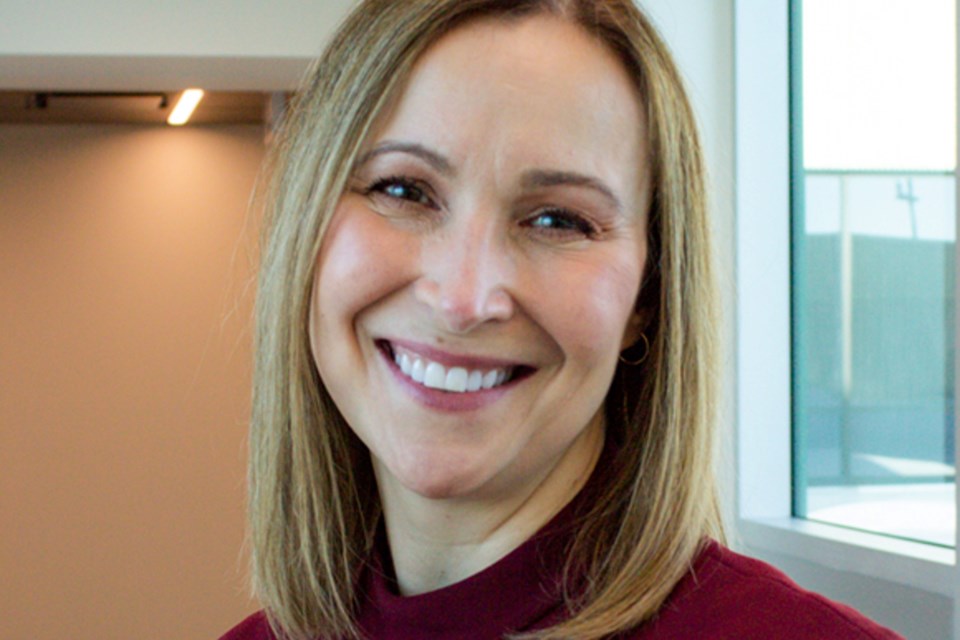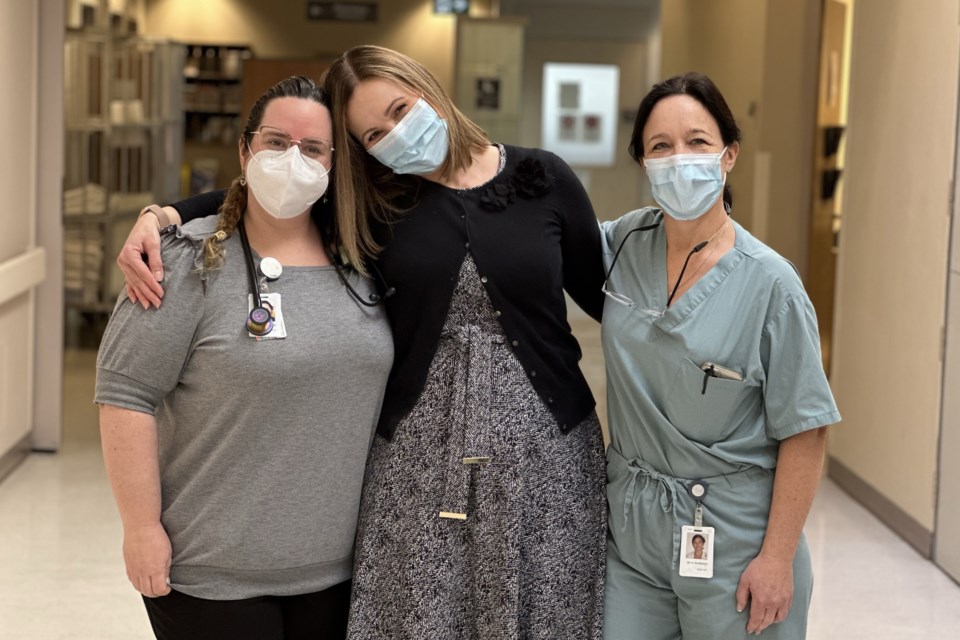A group of researchers in Sudbury is about to launch a new study that examines the financial impact of cancer on patients in Northern Ontario.
The study is the work of Stacey Santi, research chair of cancer solutions at Health Sciences North Research Institute (HSNRI), along with oncologists Dr. Lacey Pitre and Dr. Deborah Saunders, from the Shirley and Jim Fielding Northeast Cancer Centre at HSN. They share the roles as principal investigators.
Santi said one of the reasons for the study was from a personal conversation she had with a cancer patient about a year ago. The patient was from out of town.
"Somebody had to take time off work to support their loved one, to help them out, to drive them to appointments and things like that," Santi remembered.
"And you know, maybe they weren't compensated for their time, maybe they didn't have personal time, or had to use vacation days or sorts of things like that, right?"

Santi said it was something that stuck with her. It got her wondering about the impact of finances on a person's health.
"I'm trained as a molecular scientist, and so it's a branch of research I wasn't familiar with, but it affected me profoundly, on a personal level, the conversation; I couldn't shake it," she said.
Santi said the correct term is financial toxicity, and she believes it plays a role in the health of cancer patients across Northern Ontario who often have to travel great distances, and sometimes endure financial hardship.
She said she has learned that it can be difficult for patients and families when they discover there is a cancer diagnosis. Aside from the obvious medical worries, there are real life practical concerns.
"We're talking about things like out-of-pocket expenses, you know, maybe prescriptions that aren't covered, lost income, maybe medical devices that you might need as a result of treatment or resulting from treatment, medical services like home care, and then just maybe additional things not covered under insurance plans," said Santi.
She said there is a recognized link between a person's financial stability and their personal health. Santi said a person who has to cope with financial strain might also have a less desirable health outcome.
She said this is a significant concern defined by the Multinational Association of Supportive Care in Cancer (MASCC) which will discuss financial toxicity at its annual meeting next June.
"We know this is a huge, huge thing for patients, and here's where I play the devil's advocate. Your quality of life as a person is directly intertwined with your treatment outcomes and your treatment outcomes affect your quality of life, I think it's hard to separate the two," said Santi.
The study will invite patients at the Sudbury cancer centre to volunteer confidential information onto an iPad where the information will be linked to a central database. Santi said this is one of the first times HSNRI has done a digital study.
Another important element she said is that one of the research partners is a cancer patient with actual lived experience who will contribute a unique perspective to the study.
Santi said a similar study was carried out several years by Dr. Christopher Longo of McMaster University, who surveyed patients at cancer centres across Canada. She said as far-reaching as Longo's pioneering research was, most of it was focused on urban situations. Santi said nothing so far has focused only on Northern Ontario.
The HSNRI study will not be exactly the same as the Longo studies. She said some questions will not be asked but other, newer, questions will be included.
"Our experience here is different. You know, we could have people travelling from Timmins to Sudbury, like four hours to get treatment, during snowstorms," she said. "We have to make questions that really, really hit on the Northern Ontario perspective."
Santi said her survey will ask patients about their financial ability to access treatment.
"And so we do ask about the travel grant. We ask, did you apply? Did you qualify? How much did it cover? And we also ask do you have a care person? And if you had a care person, are they working full time? Did they have to take any time off work to help you with your appointments or your treatment or your illness?"
As far as a time element, Santi said the program is being launched now, as iPads are being provided to patients arriving in Sudbury this week. Santi said patients will be asked to participate for roughly six months, which will give the researchers time to gather and analyze the data.
At this time, as the study begins, Santi said she is hopeful the data will provide useful information that will somehow improve things for patients.
Len Gillis covers health care and mining for Sudbury.com.
